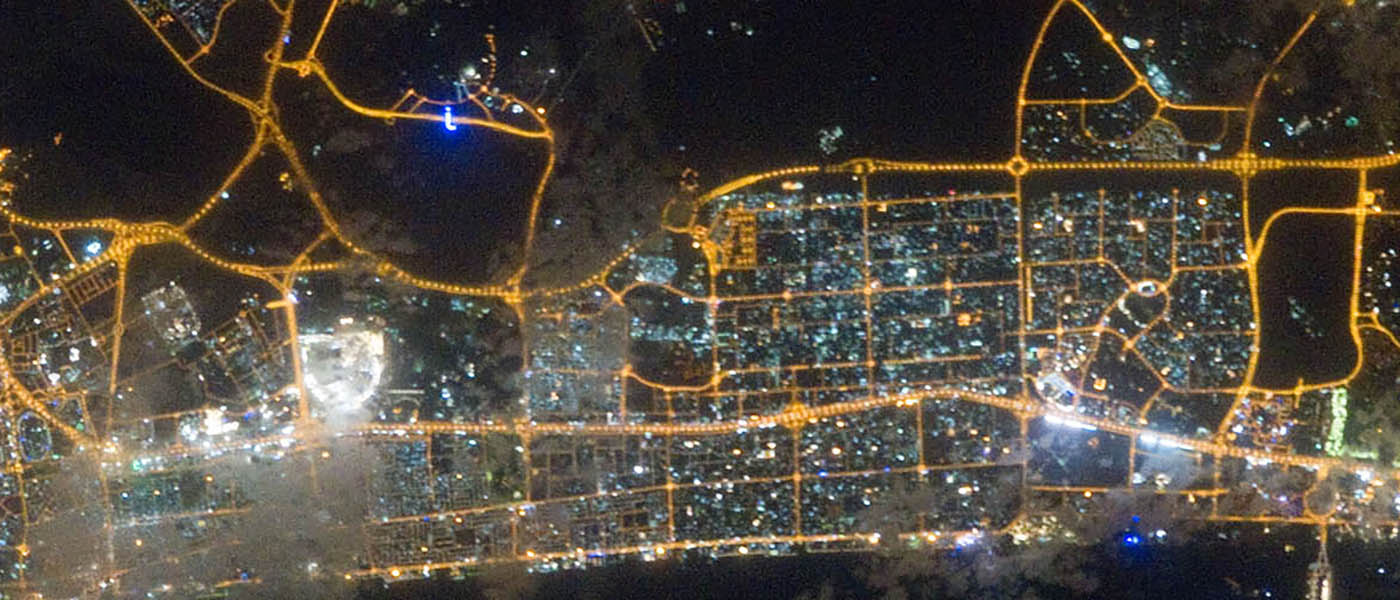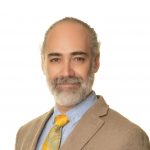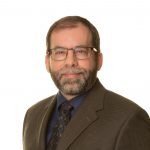Spatial Analysis
Spatial Analysis has a long tradition in Geography at McMaster University. Our focus is on understanding the nature and outcome of human and physical processes that take place over space with the use of quantitative methods, such as spatial statistics, and Geographical Information Systems (GIS). Recent focus of the Spatial Analysis group has been in applications of transportation geography, urban land use, urban and regional air pollution, and the impact of environmental pollution on human health. Faculty members from the group participate in multi-disciplinary projects, both within and outside the School of Geography & Earth Sciences. Graduates with Spatial Analysis training pursue academic careers or find employment in the public and private sectors.
Information Box Group
Alemu Gonsamo
Associate Professor
Canada Research Chair (Tier 2) in Remote Sensing of Terrestrial Ecosystems
My research areas are on ground, airborne, and satellite remote sensing of vegetation from the leaf to the globe with special focus on:
- plant structural and photosynthetic traits;
- land surface and carbon uptake phenology;
- terrestrial ecosystem primary productivity and greenness;
- global change impact on terrestrial ecosystem productivity; and
- terrestrial carbon cycle modelling.
I have done, and am doing, remote sensing of vegetation studies at ecological monitoring sites (e.g., eddy covariance tower networks); on improved product development at regional scale (e.g., leaf area index, primary productivity and land surface phenology); and on global change impact assessment on terrestrial ecosystem productivity at regional (e.g., circumpolar land surface phenology and atmospheric CO2 seasonality) and global scales. Besides remote sensing data, I use ground measurements of plant biophysical variables, photosynthetic traits, atmospheric CO2 concentration, eddy covariance CO2 fluxes and plant phenology; gridded climate data records; terrestrial ecosystem carbon cycle models; and Earth System Model (ESM) outputs.

Alemu Gonsamo
Associate Professor
Canada Research Chair (Tier 2) in Remote Sensing of Terrestrial Ecosystems
Bruce Newbold
Professor
Associate Dean, Graduate Studies (Science)
Dr. Bruce Newbold is a Professor in the School of Earth, Environment & Society (SEES) at McMaster University in Hamilton, Ontario. He received his PhD in Geography from McMaster University in 1994, and worked at the University of Illinois Urbana-Champaign between 1994 and 2000 before returning to McMaster in 2000. Since returning to McMaster, he has held Guest Scholar positions at the Center for Comparative Immigration Studies, University of California San Diego (2004), and the Medical Research Council’s Social and Public Health Sciences Unit at the University of Glasgow (2008), a position which included a Fellowship through the Department of Urban Studies, University of Glasgow. His research interests focus on population issues as they relate to immigration, migration, health, and aging. Recent research has focused on the role of migration in the development and transfer of human capital and income across space, commuting and sustainability questions, the income benefits associated with migration, immigrant health, and immigrant settlement processes.
Current Research:
As of the 2021 census, 19% of Canada’s population was aged 65 and over, with this share projected to increase to approximately 23% by 2043 as Canada’s population continues to age rapidly and fertility rates remain low.. While many of older adults will expect or desire to age in place, many will move to ‘downsize’ their living space, move to be closer to family for support, or move into care facilities. As more Canadians age into retirement, there will be more migrants and understanding where they choose to live/move is vital. Despite significant attention to migration flows within the labour force, there has been much less attention given to migration within Canada’s older adult population. From a theoretical perspective, there has also been little advancement in our understanding of the motivations associated with moves by older adults, hampering our ability to plan for Canada’s aging population, including with respect to housing options, transportation, and service provision.
This SSHRC funded research project will seek to understand the patterns, motivations, and timing for moves among older adults. In addition to understanding the spatial patterns associated with moves, the proposed research will systematically identify the most important predictors of moves, while also providing a tool to predict whether an individual will/will not move, enabling planning for Canada’s aging population.
Antonio Paez
Professor
Associate Member: Civil Engineering
Antonio Paez is full professor in the School of Earth, Environment & Society at McMaster University. Recent work includes studies on accessibility, spatial filtering, aging and mobility, spatial analysis of qualitative variables, transportation and social exclusion, the influence of the built and social environments on travel behavior, social networks and decision making, telework adoption, and blood donor behavior and trends. Dr. Paez has published widely, and is author or co-author of over 110 papers, many appearing in leading international journals, including Environment and Planning A and B, Urban Studies, Geographical Analysis, Journal of Geographical Systems, Transportation, Journal of Transport Geography, Transportation, Transportation Research Part A, Papers in Regional Science, International Journal of Health Geographics, Growth and Change, and Social Networks. He also co-edited the books Progress in Spatial Analysis: Methods and Applications (published in 2009 as part of Springer’s series Advances in Spatial Science), and Population Loss: The Role of Transportation and Other Issues (published in 2018 as part of Elsevier’s Advances in Transport Policy and Planning Series). He currently serves as Editor-in-Chief of the Journal of Geographical Systems, and sits on the editorial boards of Transportation, Journal of Transport Geography, Geographical Analysis, and International Journal of Geographical Information Science, among others.
Darren Scott
Professor
Dr. Darren Scott is a Professor in the School of Geography & Earth Sciences at McMaster University where he teaches courses in Geographic Information Science. Dr. Scott was an Assistant Professor in the Department of Geography and Geosciences at the University of Louisville between 1999 and 2002, and held a Visiting Research Professor position at the Swiss Federal Institute of Technology (Zurich) in 2008. Dr. Scott’s undergraduate degree is in geography (BA. Honors and Co-op, 1991), with graduate degrees also in geography from the University of Western Ontario (MA, 1994) and McMaster University (PhD, 2000). Dr. Scott has published over eightly refereed journal articles in leading transportation, regional science, and urban studies journals. Dr. Scott’s research program has been supported by grants from the National Science Foundation of the United States (NSF), the Social Sciences and Humanities Research Council of Canada (SSHRC), the Natural Sciences and Engineering Research Council of Canada (NSERC), and Geomatics for Informed Decisions (GEOIDE), among other funding agencies. In 2008, Dr. Scott established a research lab – TransLAB – in the School of Earth, Environment & Society where advanced transportation research is conducted by students working under his supervision.
Niko Yiannakoulias
Associate Professor
Dr. Niko Yiannakoulias came to McMaster University in 2007 after completing his PhD at the University of Alberta in 2006. His primary fields of interest include environmental health and geographic information science (GISci). He has done applied work in the areas of environmental health, transportation safety, mental health and crime. He has developed methods for analyzing spatial patterns of disease, solving political districting problems, geographic crime profiling and public health surveillance. Dr. Yiannakoulias’ research has been funded primarily by the Social Sciences and Humanities Research Council (SSRHC) and the Public Health Agency of Canada (PHAC).
Research Interests:
1. Environmental health
- Understanding and characterizing interactions between the environment and human health
- Understanding spatial-temporal structures in infectious disease
- Geographic health surveillance
- Paediatric injury and the social and physical environment
2. Environmental risk analysis and risk communication
- Associations between environmental decision making and risk perception
- Risk communication systems for rare events
- Risk mitigation strategies
- Research game approaches to environmental policy analysis
3. Agent-based models of human and environment interaction
- Developing agent-based models to observe the emergence of spatial patterns in cooperative and competitive social environments
- Studying how changes in social behaviour (such as immunization) interact with the evolution of disease virulence in pathogenic microorganisms
- Agent-based models for infectious disease control and planning
- Environmental games and game theory
Alemu Gonsamo
Associate Professor
Canada Research Chair (Tier 2) in Remote Sensing of Terrestrial Ecosystems
My research areas are on ground, airborne, and satellite remote sensing of vegetation from the leaf to the globe with special focus on:
- plant structural and photosynthetic traits;
- land surface and carbon uptake phenology;
- terrestrial ecosystem primary productivity and greenness;
- global change impact on terrestrial ecosystem productivity; and
- terrestrial carbon cycle modelling.
I have done, and am doing, remote sensing of vegetation studies at ecological monitoring sites (e.g., eddy covariance tower networks); on improved product development at regional scale (e.g., leaf area index, primary productivity and land surface phenology); and on global change impact assessment on terrestrial ecosystem productivity at regional (e.g., circumpolar land surface phenology and atmospheric CO2 seasonality) and global scales. Besides remote sensing data, I use ground measurements of plant biophysical variables, photosynthetic traits, atmospheric CO2 concentration, eddy covariance CO2 fluxes and plant phenology; gridded climate data records; terrestrial ecosystem carbon cycle models; and Earth System Model (ESM) outputs.
Alemu Gonsamo
Associate Professor
Canada Research Chair (Tier 2) in Remote Sensing of Terrestrial Ecosystems
My research areas are on ground, airborne, and satellite remote sensing of vegetation from the leaf to the globe with special focus on:
- plant structural and photosynthetic traits;
- land surface and carbon uptake phenology;
- terrestrial ecosystem primary productivity and greenness;
- global change impact on terrestrial ecosystem productivity; and
- terrestrial carbon cycle modelling.
I have done, and am doing, remote sensing of vegetation studies at ecological monitoring sites (e.g., eddy covariance tower networks); on improved product development at regional scale (e.g., leaf area index, primary productivity and land surface phenology); and on global change impact assessment on terrestrial ecosystem productivity at regional (e.g., circumpolar land surface phenology and atmospheric CO2 seasonality) and global scales. Besides remote sensing data, I use ground measurements of plant biophysical variables, photosynthetic traits, atmospheric CO2 concentration, eddy covariance CO2 fluxes and plant phenology; gridded climate data records; terrestrial ecosystem carbon cycle models; and Earth System Model (ESM) outputs.
Bruce Newbold
Professor
Associate Dean, Graduate Studies (Science)
Dr. Bruce Newbold is a Professor in the School of Earth, Environment & Society (SEES) at McMaster University in Hamilton, Ontario. He received his PhD in Geography from McMaster University in 1994, and worked at the University of Illinois Urbana-Champaign between 1994 and 2000 before returning to McMaster in 2000. Since returning to McMaster, he has held Guest Scholar positions at the Center for Comparative Immigration Studies, University of California San Diego (2004), and the Medical Research Council’s Social and Public Health Sciences Unit at the University of Glasgow (2008), a position which included a Fellowship through the Department of Urban Studies, University of Glasgow. His research interests focus on population issues as they relate to immigration, migration, health, and aging. Recent research has focused on the role of migration in the development and transfer of human capital and income across space, commuting and sustainability questions, the income benefits associated with migration, immigrant health, and immigrant settlement processes.
Current Research:
As of the 2021 census, 19% of Canada’s population was aged 65 and over, with this share projected to increase to approximately 23% by 2043 as Canada’s population continues to age rapidly and fertility rates remain low.. While many of older adults will expect or desire to age in place, many will move to ‘downsize’ their living space, move to be closer to family for support, or move into care facilities. As more Canadians age into retirement, there will be more migrants and understanding where they choose to live/move is vital. Despite significant attention to migration flows within the labour force, there has been much less attention given to migration within Canada’s older adult population. From a theoretical perspective, there has also been little advancement in our understanding of the motivations associated with moves by older adults, hampering our ability to plan for Canada’s aging population, including with respect to housing options, transportation, and service provision.
This SSHRC funded research project will seek to understand the patterns, motivations, and timing for moves among older adults. In addition to understanding the spatial patterns associated with moves, the proposed research will systematically identify the most important predictors of moves, while also providing a tool to predict whether an individual will/will not move, enabling planning for Canada’s aging population.
Bruce Newbold
Professor
Associate Dean, Graduate Studies (Science)
Dr. Bruce Newbold is a Professor in the School of Earth, Environment & Society (SEES) at McMaster University in Hamilton, Ontario. He received his PhD in Geography from McMaster University in 1994, and worked at the University of Illinois Urbana-Champaign between 1994 and 2000 before returning to McMaster in 2000. Since returning to McMaster, he has held Guest Scholar positions at the Center for Comparative Immigration Studies, University of California San Diego (2004), and the Medical Research Council’s Social and Public Health Sciences Unit at the University of Glasgow (2008), a position which included a Fellowship through the Department of Urban Studies, University of Glasgow. His research interests focus on population issues as they relate to immigration, migration, health, and aging. Recent research has focused on the role of migration in the development and transfer of human capital and income across space, commuting and sustainability questions, the income benefits associated with migration, immigrant health, and immigrant settlement processes.
Current Research:
As of the 2021 census, 19% of Canada’s population was aged 65 and over, with this share projected to increase to approximately 23% by 2043 as Canada’s population continues to age rapidly and fertility rates remain low.. While many of older adults will expect or desire to age in place, many will move to ‘downsize’ their living space, move to be closer to family for support, or move into care facilities. As more Canadians age into retirement, there will be more migrants and understanding where they choose to live/move is vital. Despite significant attention to migration flows within the labour force, there has been much less attention given to migration within Canada’s older adult population. From a theoretical perspective, there has also been little advancement in our understanding of the motivations associated with moves by older adults, hampering our ability to plan for Canada’s aging population, including with respect to housing options, transportation, and service provision.
This SSHRC funded research project will seek to understand the patterns, motivations, and timing for moves among older adults. In addition to understanding the spatial patterns associated with moves, the proposed research will systematically identify the most important predictors of moves, while also providing a tool to predict whether an individual will/will not move, enabling planning for Canada’s aging population.
Antonio Paez
Professor
Associate Member: Civil Engineering
Antonio Paez is full professor in the School of Earth, Environment & Society at McMaster University. Recent work includes studies on accessibility, spatial filtering, aging and mobility, spatial analysis of qualitative variables, transportation and social exclusion, the influence of the built and social environments on travel behavior, social networks and decision making, telework adoption, and blood donor behavior and trends. Dr. Paez has published widely, and is author or co-author of over 110 papers, many appearing in leading international journals, including Environment and Planning A and B, Urban Studies, Geographical Analysis, Journal of Geographical Systems, Transportation, Journal of Transport Geography, Transportation, Transportation Research Part A, Papers in Regional Science, International Journal of Health Geographics, Growth and Change, and Social Networks. He also co-edited the books Progress in Spatial Analysis: Methods and Applications (published in 2009 as part of Springer’s series Advances in Spatial Science), and Population Loss: The Role of Transportation and Other Issues (published in 2018 as part of Elsevier’s Advances in Transport Policy and Planning Series). He currently serves as Editor-in-Chief of the Journal of Geographical Systems, and sits on the editorial boards of Transportation, Journal of Transport Geography, Geographical Analysis, and International Journal of Geographical Information Science, among others.
Antonio Paez
Professor
Associate Member: Civil Engineering
Antonio Paez is full professor in the School of Earth, Environment & Society at McMaster University. Recent work includes studies on accessibility, spatial filtering, aging and mobility, spatial analysis of qualitative variables, transportation and social exclusion, the influence of the built and social environments on travel behavior, social networks and decision making, telework adoption, and blood donor behavior and trends. Dr. Paez has published widely, and is author or co-author of over 110 papers, many appearing in leading international journals, including Environment and Planning A and B, Urban Studies, Geographical Analysis, Journal of Geographical Systems, Transportation, Journal of Transport Geography, Transportation, Transportation Research Part A, Papers in Regional Science, International Journal of Health Geographics, Growth and Change, and Social Networks. He also co-edited the books Progress in Spatial Analysis: Methods and Applications (published in 2009 as part of Springer’s series Advances in Spatial Science), and Population Loss: The Role of Transportation and Other Issues (published in 2018 as part of Elsevier’s Advances in Transport Policy and Planning Series). He currently serves as Editor-in-Chief of the Journal of Geographical Systems, and sits on the editorial boards of Transportation, Journal of Transport Geography, Geographical Analysis, and International Journal of Geographical Information Science, among others.
Darren Scott
Professor
Dr. Darren Scott is a Professor in the School of Geography & Earth Sciences at McMaster University where he teaches courses in Geographic Information Science. Dr. Scott was an Assistant Professor in the Department of Geography and Geosciences at the University of Louisville between 1999 and 2002, and held a Visiting Research Professor position at the Swiss Federal Institute of Technology (Zurich) in 2008. Dr. Scott’s undergraduate degree is in geography (BA. Honors and Co-op, 1991), with graduate degrees also in geography from the University of Western Ontario (MA, 1994) and McMaster University (PhD, 2000). Dr. Scott has published over eightly refereed journal articles in leading transportation, regional science, and urban studies journals. Dr. Scott’s research program has been supported by grants from the National Science Foundation of the United States (NSF), the Social Sciences and Humanities Research Council of Canada (SSHRC), the Natural Sciences and Engineering Research Council of Canada (NSERC), and Geomatics for Informed Decisions (GEOIDE), among other funding agencies. In 2008, Dr. Scott established a research lab – TransLAB – in the School of Earth, Environment & Society where advanced transportation research is conducted by students working under his supervision.
Darren Scott
Professor
Dr. Darren Scott is a Professor in the School of Geography & Earth Sciences at McMaster University where he teaches courses in Geographic Information Science. Dr. Scott was an Assistant Professor in the Department of Geography and Geosciences at the University of Louisville between 1999 and 2002, and held a Visiting Research Professor position at the Swiss Federal Institute of Technology (Zurich) in 2008. Dr. Scott’s undergraduate degree is in geography (BA. Honors and Co-op, 1991), with graduate degrees also in geography from the University of Western Ontario (MA, 1994) and McMaster University (PhD, 2000). Dr. Scott has published over eightly refereed journal articles in leading transportation, regional science, and urban studies journals. Dr. Scott’s research program has been supported by grants from the National Science Foundation of the United States (NSF), the Social Sciences and Humanities Research Council of Canada (SSHRC), the Natural Sciences and Engineering Research Council of Canada (NSERC), and Geomatics for Informed Decisions (GEOIDE), among other funding agencies. In 2008, Dr. Scott established a research lab – TransLAB – in the School of Earth, Environment & Society where advanced transportation research is conducted by students working under his supervision.
Niko Yiannakoulias
Associate Professor
Dr. Niko Yiannakoulias came to McMaster University in 2007 after completing his PhD at the University of Alberta in 2006. His primary fields of interest include environmental health and geographic information science (GISci). He has done applied work in the areas of environmental health, transportation safety, mental health and crime. He has developed methods for analyzing spatial patterns of disease, solving political districting problems, geographic crime profiling and public health surveillance. Dr. Yiannakoulias’ research has been funded primarily by the Social Sciences and Humanities Research Council (SSRHC) and the Public Health Agency of Canada (PHAC).
Research Interests:
1. Environmental health
- Understanding and characterizing interactions between the environment and human health
- Understanding spatial-temporal structures in infectious disease
- Geographic health surveillance
- Paediatric injury and the social and physical environment
2. Environmental risk analysis and risk communication
- Associations between environmental decision making and risk perception
- Risk communication systems for rare events
- Risk mitigation strategies
- Research game approaches to environmental policy analysis
3. Agent-based models of human and environment interaction
- Developing agent-based models to observe the emergence of spatial patterns in cooperative and competitive social environments
- Studying how changes in social behaviour (such as immunization) interact with the evolution of disease virulence in pathogenic microorganisms
- Agent-based models for infectious disease control and planning
- Environmental games and game theory
Niko Yiannakoulias
Associate Professor
Dr. Niko Yiannakoulias came to McMaster University in 2007 after completing his PhD at the University of Alberta in 2006. His primary fields of interest include environmental health and geographic information science (GISci). He has done applied work in the areas of environmental health, transportation safety, mental health and crime. He has developed methods for analyzing spatial patterns of disease, solving political districting problems, geographic crime profiling and public health surveillance. Dr. Yiannakoulias’ research has been funded primarily by the Social Sciences and Humanities Research Council (SSRHC) and the Public Health Agency of Canada (PHAC).
Research Interests:
1. Environmental health
- Understanding and characterizing interactions between the environment and human health
- Understanding spatial-temporal structures in infectious disease
- Geographic health surveillance
- Paediatric injury and the social and physical environment
2. Environmental risk analysis and risk communication
- Associations between environmental decision making and risk perception
- Risk communication systems for rare events
- Risk mitigation strategies
- Research game approaches to environmental policy analysis
3. Agent-based models of human and environment interaction
- Developing agent-based models to observe the emergence of spatial patterns in cooperative and competitive social environments
- Studying how changes in social behaviour (such as immunization) interact with the evolution of disease virulence in pathogenic microorganisms
- Agent-based models for infectious disease control and planning
- Environmental games and game theory





